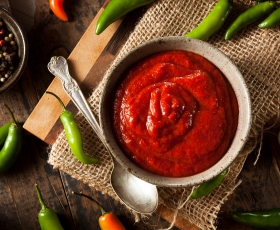Introduction
Private tag specialized foods have actually obtained tremendous appeal in recent times. With consumers seeking special and individualized food options, private label food products have actually become a go-to selection for lots of. In this short article, we will certainly look into the detailed process of private label food production, discovering the steps included and the principals in the industry.
The Rise of Private Label Food Manufacturers in Australia
Australia has actually experienced a significant surge in private label food producers. With consumers ending up being extra mindful about their nutritional preferences and demanding premium items, private label food manufacturing has actually emerged as a profitable business possibility. These makers cater to numerous sectors, consisting of exclusive tag cheese, junk food makers, and more.
Understanding Private Label Food Manufacturing
Private tag food manufacturing involves developing and generating food products for sellers or companies that after that market these products under their own brand name. This process permits retailers to supply one-of-a-kind offerings to their customers without investing heavily in research and development or production infrastructure.
Key Steps Associated with Private Label Food Manufacturing
Step 1: Item Advancement and Customization
Private tag food suppliers function carefully with stores to understand their needs and establish personalized products. This step involves brainstorming sessions, market research, and dish formulation. Exclusive tag specialty foods are designed to deal with specific consumer choices and dietary needs.
Step 2: Sourcing Ingredients
Once the item specs are wrapped up, private label food suppliers resource high-grade active ingredients from relied on distributors. They make certain that all components fulfill rigorous quality requirements and adhere to laws set by pertinent authorities.

Step 3: Manufacturing and Packaging
After procuring the active ingredients, private label food manufacturing begins. The production facilities use advanced tools and adhere to stringent health methods to produce secure and delicious food. Product packaging is likewise an integral part of this step, making certain that the item remains fresh while interesting consumers.
Step 4: Quality Control and Testing
Private label food producers perform strenuous quality control checks at every phase of the production procedure. This includes testing the components, checking production lines, and conducting sensory evaluations. These actions make certain that the end product meets the finest quality standards.

Step 5: Labeling and Compliance
Once the items are manufactured and top quality examined, private label food manufacturers handle labeling and compliance. They ensure that all info on the item labels is accurate and follow governing guidelines. This action is essential to provide customers with clear info about the product's contents and nutritional values.
Advantages of Private Label Food Manufacturing
Private tag food production provides a number of advantages for both stores and consumers. Let's discover several of these benefits:
Customization: Merchants have the freedom to produce one-of-a-kind products tailored to their target market, enabling them to distinguish themselves from competitors.
Cost-effectiveness: Private label food makers supply cost-effective remedies by removing the demand for stores to buy research study, advancement, and manufacturing infrastructure.
Control over branding: Sellers can construct their brand image by marketing exclusive label foods under their own name. This allows them to develop trust and commitment among consumers.
Flexibility: Private label food production provides stores with adaptability in terms of item offerings. They can easily adjust to changing consumer fads and preferences.
Higher earnings margins: With lowered manufacturing expenses, sellers can appreciate higher revenue margins on private label food products contrasted to branded alternatives.
Quality assurance: Private label food producers prioritize quality control actions, making sure that stores get consistent and top quality products for their customers.
FAQs concerning Private Label Food Manufacturing
Q1: What is the function of private label food manufacturers?
A1: Private label food makers play a vital role in developing customized food for retailers or businesses that market them under their very own brand name.
Q2: Exactly how does private label food manufacturing advantage retailers?
A2: Private label food production enables stores to use special items, develop their brand photo, and enjoy higher profit margins contrasted to branded alternatives.
Q3: Can private label food makers deal with particular dietary preferences?
A3: Yes, private label food suppliers can create products tailored to particular dietary requirements and choices, consisting of gluten-free, vegan, or natural options.
Q4: Exist any policies governing private label food manufacturing?
A4: Yes, private label food manufacturers must comply with policies set by pertinent authorities concerning ingredient sourcing, labeling, and top quality control.
Q5: Can private label food suppliers take care of massive production?
A5: Yes, private label food suppliers have the capabilities to deal with both small-scale and large manufacturing based upon the private label foods store's requirements.
Q6: How can sellers guarantee the high quality of private label food products?
A6: Stores should team up with credible private label food suppliers who focus on stringent quality control actions and have a track record of providing remarkable products.
Conclusion
Private tag food production supplies a globe of possibilities for stores aiming to give special and individualized offerings to their customers. With a streamlined procedure involving product development, ingredient sourcing, production, packaging, and quality assurance, exclusive label specialized foods have actually gained immense appeal. By partnering with trusted private label food manufacturers in Australia or any type of various other region, stores can establish their brand name identification while appreciating cost-effectiveness and flexibility in their product offerings. So why wait? Dive into the interesting globe of private tag foods today!
